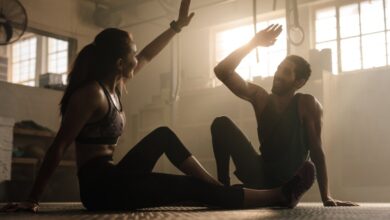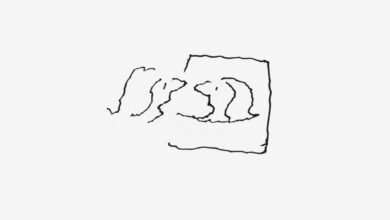YouTube prohibits misinformation about vaccinations

However, it took months to create new rules and enforcement guidelines due to the difficulty of curbing content in many languages and the complicated debate over where to draw the line on what users can post, the person said. For example, YouTube won't remove a video of a parent talking about a child's negative reaction to a vaccine, but it will remove a channel dedicated to parents who provide such testimonials.
Understand US vaccine and mask requirements
-
- Vaccination rules. On August 23, the Food and Drug Administration granted Pfizer-BioNTech's coronavirus vaccine full approval for those aged 16 and over, paving the way for an increase in mandates in both the public and private sectors. Private companies are increasingly demanding vaccines for their employees. Such mandates are legally permissible and have been confirmed in the event of legal challenges.
- Mask rules. The Centers for Disease Control and Prevention recommended in July that all Americans, regardless of vaccination status, wear masks in public places indoors in areas with outbreaks, a reversal of the guidelines offered in May. See where the C.D.C. Guidelines would apply and where states have implemented their own mask guidelines. The battle over masks is controversial in some states, with some local leaders defying state bans.
- College and Universities. More than 400 colleges and universities require a vaccination against Covid-19. Almost all of them are in states that voted for President Biden.
- schools. Both California and New York City have introduced vaccine mandates for educational staff. A survey published in August found that many American parents of school-age children are opposed to mandatory vaccines for students but are more supportive of masking requirements for students, teachers, and staff who do not have a vaccination.
- Hospitals and medical centers. Many hospitals and large health systems require their employees to have a Covid-19 vaccine, due to rising case numbers due to the Delta variant and persistently low vaccination rates in their communities, even within their workforce.
- New York City. Evidence of vaccination from workers and customers is required for indoor dining, gyms, performances, and other indoor situations. On September 27, a federal appellate body overturned a decision suspending a mandate that teachers and other education workers in the city's vast school system must be given at least one dose of vaccine without the option of weekly testing. City hospital staff must also be vaccinated or have weekly tests. Similar rules apply to employees in New York State.
- At the federal level. The Pentagon announced that it would make coronavirus vaccinations compulsory for the country's 1.3 million active troops "by mid-September at the latest. President Biden announced that all civil federal employees would need to be vaccinated against the coronavirus or undergo regular tests, social distancing, mask requirements and travel restrictions.
Misinformation researchers have for years pointed to the proliferation of anti-vaccine content on social networks as a factor in vaccine hesitation – including slowing Covid-19 vaccine adoption in more conservative states. Reports have shown that YouTube videos often serve as a source of content that then goes viral on platforms like Facebook and Twitter, sometimes generating tens of millions of views.
"A platform's policies affect everyone else's enforcement because of the way networks work across services," said Evelyn Douek, a lecturer at Harvard Law School who focuses on online language and misinformation. "YouTube, for example, is one of the most heavily linked domains on Facebook."
She added, “It is not possible to think of these problems platform by platform. Opponents of vaccination don't keep them like that. We have to look at the internet ecosystem as a whole. "
Celebrity anti-vaccine activists have been able to build huge audiences online, aided by the algorithmic capabilities of social networks that prioritize videos and posts that are particularly successful in drawing people's attention. A nonprofit, the Center for Countering Digital Hate, released a study earlier this year showing that a group of 12 people shared 65 percent of all anti-vaccine messages on social media, calling the group the "Disinformation Dozen." ". In July, the White House cited the research when it criticized tech companies for spreading misinformation about the coronavirus and vaccines, causing a tense back-and-forth between the government and Facebook.
Several people listed in the Disinformation Dozen no longer have channels on YouTube, including Dr. Mercola, an osteopathic doctor who took first place on the list. His total followers on Facebook and Instagram are more than three million, while his YouTube account had almost half a million followers before it was closed. The still active Twitter account of Dr. Mercola has over 320,000 followers.
YouTube said it removed over 130,000 videos in the past year for violating its Covid-19 vaccine guidelines. However, this did not include what the video platform referred to as "borderline videos" discussing vaccine skepticism on the website. In the past, the company simply removed such videos from search results and recommendations while promoting videos from experts and public health institutions.
Daisuke Wakabayashi contributed to the coverage. Ben Decker contributed research.



